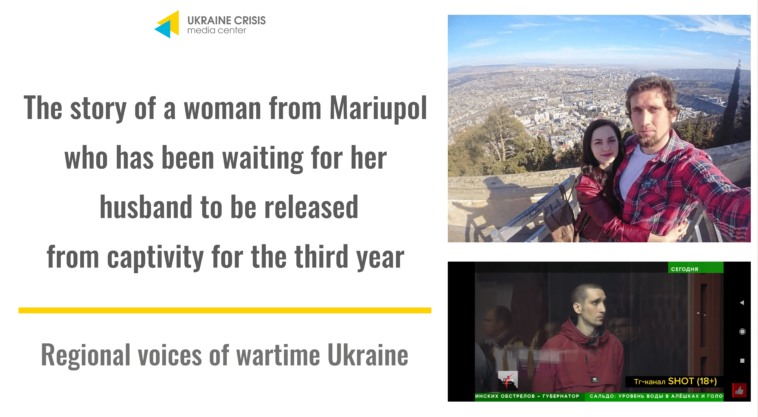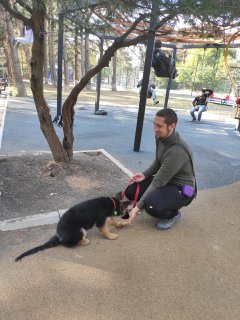Russian brutality has turned millions of lives into dramatic stories that could hardly be imagined before the all-out war. The tragedy of Mariupol and its residents shocked the whole planet. Almost every resident of Mariupol went through hell, and for many it is still going on, as, for example, for Viktoria, who took refuge in Lithuania, but has never found peace. Her husband has been held captive by the Russians since the spring of 2022.
“They will either jail or kill me,” are the words that Yaroslav Zhdamarov said to his beloved Viktoria before he was taken prisoner. The words that the girl recalls with pain in her heart and tears in her eyes.
It’s been three years since her husband was abducted, but Viktoria keeps fighting and looking for every opportunity to help her beloved. What was the couple’s life like before Russia’s full-scale invasion? With what thoughts did they leave the destroyed city? How does the girl who has been waiting for her beloved to return for so long live? Read more in the article.
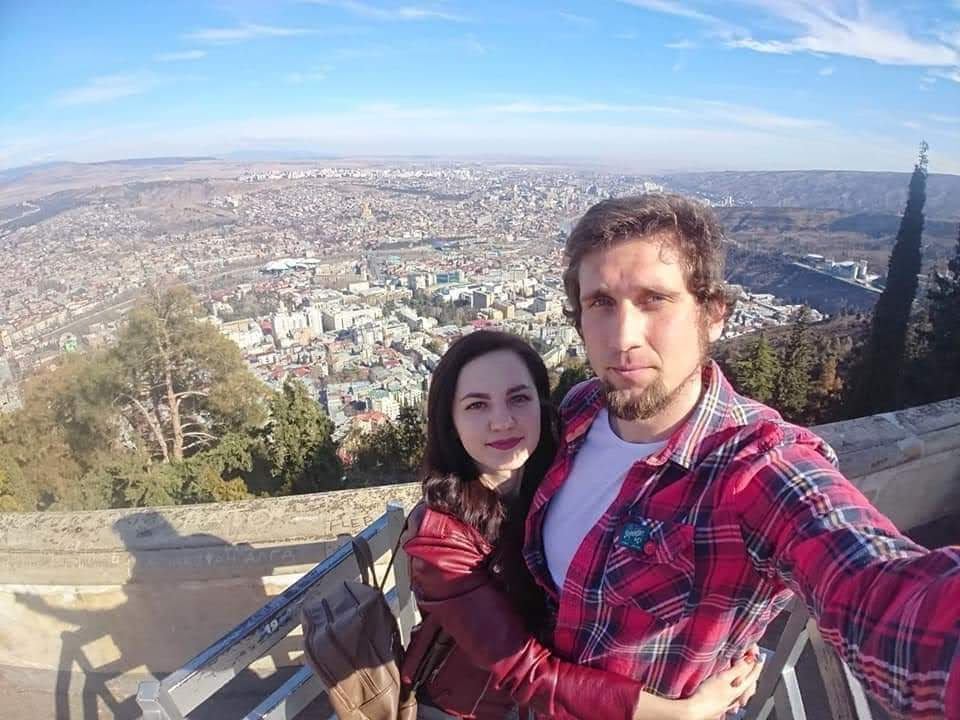
The first time they met and the beginning of great love
Viktoria and Yaroslav were born and lived in Mariupol. Fate brought them together 10 years ago, while they were at university.
“After chatting online for a few days, Yaroslav asked me out. From the very first moment we met, I had a very strange feeling – as if I’d known this guy all my life… As if we’d known each other for a long time, but met only at that time,” the girl says.
A day with a downpour is a memory that warms Viktoria’s heart.
“Summer. June. First date. It was pouring with rain that day, and I was wearing shoes that easily let water through. To prevent me from getting my feet wet, Yaroslav carried me on his back to the cafe. It was very romantic. I will remember that day and that moment for the rest of my life,” Viktoria warmly recalls.
After graduating from the university, Victoria connected her life with the beauty industry and became a manicurist. And Yaroslav joined Azov under contract. He chose that brigade so that he could see his family more often.
“While serving, my beloved began to learn about dog training. It was his inspiration and a big part of his life. We also had a dog that my husband took from the service. It went through all those terrible moments of the all-out war together with us and is still with me now. Besides training, Yaroslav also developed a business – he had several vending machines selling purified drinking water,” the girl adds.
Viktoria’s favorite place in Mariupol was the sea. She recalls with sadness:
“I used to live by the sea with my parents, and when I moved in with Yaroslav, we also lived not far from it. Two days before the 2022 invasion, we unexpectedly went to the beach. Just to sit and enjoy the moment, as if we were apprehending something dreadful…this is my last warm memory from pre-war Mariupol…”
The challenge of the blockade and the abduction of Yaroslav Zhdamarov
Like most towns and villages in the Luhansk and Donetsk regions, Mariupol had been close to the front line since the war in the east of Ukraine began in 2014. But, despite this, Victoria says no one could have imagined such a large-scale disaster.
“Of course, there was a nervous feeling a few days before the invasion, but I couldn’t have imagined that this time could turn into a nightmare that I would rather forget. Our city seemed to be ready for anything, but, as it turned out, not for a blockade,” says the girl.
Yaroslav and Viktoria were awakened by the Russian attack at 5 a.m.
“We woke up to the sounds of explosions and immediately understood what was happening. We started reading the news and saw Putin’s address, where he announced the beginning of the so-called ‘SVO’ (Special military operation). We stayed in Mariupol for 2 months – from February 24 to April 24. We lived in the basement for six weeks. All the time. It wasn’t the case when we went down only when an alarm sounded. There was constant shelling every day, and I think it never stopped,” Viktoria says.
The girl talks about the obstacles she and her family had to face after the invasion:
“After running out of drinking water, we took water from the sea, and also melted snow which we collected from cars. We cooked under shelling… It’s hard to say what the scariest thing was at that time. But the awareness that there was no help at all added to the fear. There were no police, no doctors, no firefighters. We understood: if anyone gets injured or a building catches fire, we’ll have to help ourselves. At that time, our house was also burning. The fire quickly spread over a large area, but we couldn’t even put it out because the situation was life-threatening. There was only one option – to leave the apartment. People survived as best they could.”
On April 22, enemy soldiers came to the basement where Yaroslav and Viktoria were hiding:
“That morning, we woke up to a neighbor’s voice saying that all men had to come out for a document check. She said that the occupiers had come, and we understood that the situation was getting worse. Then we were still waiting for the Armed Forces of Ukraine. It was a strange feeling…” the girl recalls.
Yaroslav and Viktoria stayed in Mariupol for 2 months. And after the occupiers arrived, they were faced with a choice – to move into vacant houses in the Eastern district or leave the city. The family chose the second option.
“We had to go through filtration, like everyone else who wanted to leave Mariupol or stay in the city. We understood that it would be a thorough check, and we would either be lucky and pass it, or vice versa. At that time, I wasn’t fully aware of how the situation could turn out for our whole family. It was the first time I felt relieved because, despite the outbreak of such a war, we survived. Sitting in the basement, I thought every night that it might be the last,” the girl admits.
Just before the filtration, everyone who wanted to leave was taken to a temporary accommodation point. That’s when Viktoria realized that Yaroslav might be taken away.
“Right at the entrance, they checked all our things. If you had a laptop or a mobile, you had to prove that they were yours. Yaroslav was the first to go to those people. I don’t know how to call them. They were in military uniform, but had no insignia. All men were asked whether they had served. Yaroslav admitted during the interrogation that he had served in the National Guard of Ukraine. But the occupiers had long had access to the military personnel database. They took him away, moved him to the side, dictated all the data to someone over the phone, and didn’t return his documents. They told him to wait,” the girl says.
During that time, Yaroslav managed to talk to his family: his sister, mother and his beloved. Viktoria said what the man told her:
“He admitted that they told him they would either jail or kill him. He was ready for the worst and said farewell to me as if it were the last time… I couldn’t believe it was really happening to me, to my family… It was like a blur…”
At half past one on April 24, Yaroslav was taken away.
“It was Easter. We were still at the filtration camp. We tried to ask the enemy soldiers where and for how long Yaroslav had been taken. One of them said that his case would still be considered, but if he could, he would kill him right away. I was waiting for my beloved to come, but no… Minute after minute, hour after hour, he was gone… My husband’s mother and sister and I decided to wait until the next morning, and if Yaroslav didn’t turn up, we’d leave. Only in a safe area will we be able to help him,” says Viktoria.
She left with her husband’s mother and sister first for Germany, and now they live in Lithuania.
“It was hard to leave, because we have a big dog. It was difficult to find a place that would accept refugees with an animal, because we didn’t want to take our family member to a shelter. Our dog is very sociable and needs to be with his people. We didn’t even think of leaving it. We stayed in a refugee camp in Germany for some time, and then moved to Lithuania,” she says.
Attempts to find Yaroslav
Viktoria is still experiencing constant fear and stress, because her husband is still in captivity. The girl recalls that a week after Yaroslav was taken away, she received a phone call:
“A guy called me from an unknown number. He said he’d spent a day with my husband, who, the stranger said, was in Donetsk at the time. On May 18, I got another call from an unknown number. Then I heard Yaroslav’s familiar voice. I think he was calling from an investigator. He said he was waiting for a trial in Donetsk. After that, I kept looking for witnesses who could confirm that my husband is alive.”
Victoria began to join social media chats where people talked about prisoners, wrote letters to the organization engaged in their search. She wanted to be heard and helped.
“I wrote to the National Information Bureau, the SBU, the police, the ombudsman, and the President’s Office. We also turned to various human rights organizations. Most of them answered that they were working to bring every captive back home. But a few gave me more detailed answers and advice, for example, the NGO Blue Bird. Then I contacted representatives of another human rights organization. They advised on our further steps in the case and helped us send official requests to get information about Yaroslav. We sent a request to the so-called ’DPR administration’, where my husband could be. Later we received confirmation. He stayed in Donetsk for a little over a year. In March 2023, we received a letter saying that Yaroslav’s case had been transferred to the Rostov military court. We were waiting for him to be brought to the city to establish at least some contact through a lawyer,” says Viktoria.
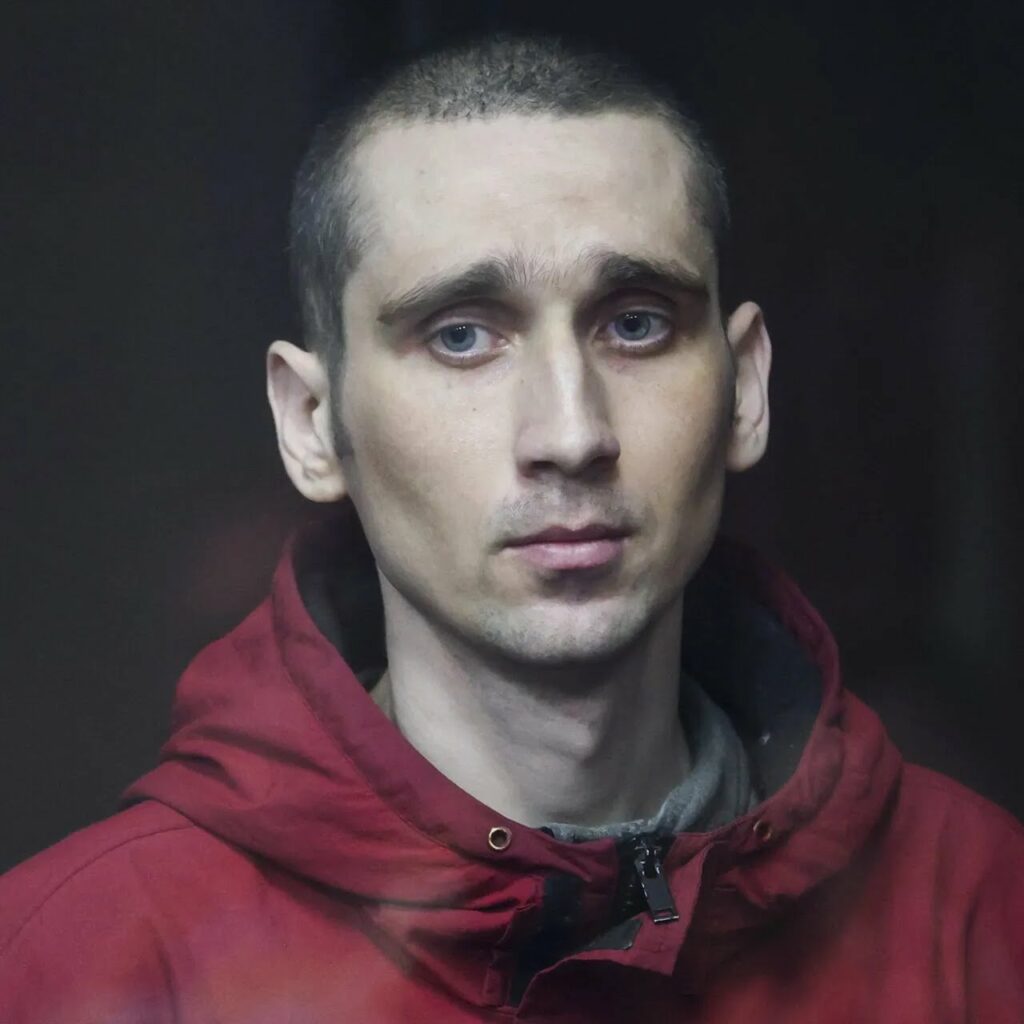
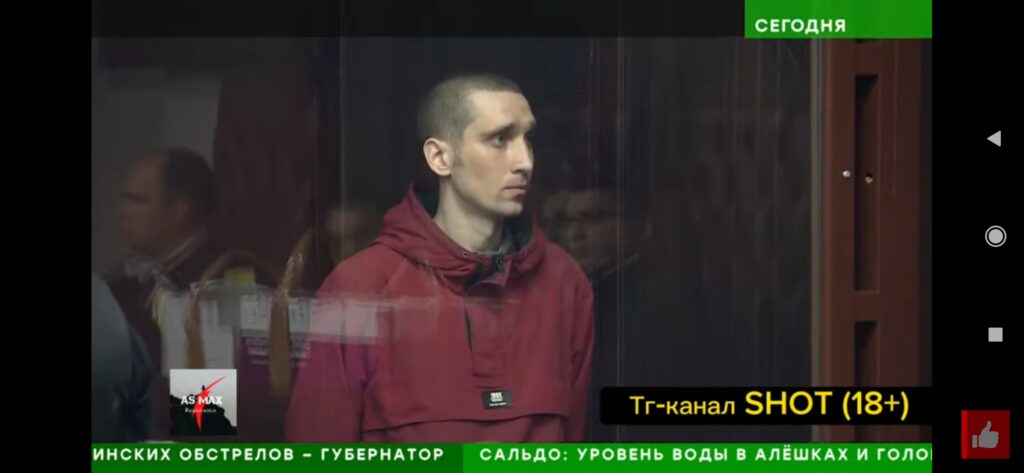
Victoria adds that the trial began last June. Yaroslav Zhdamarov is tried as a military man under three articles, although he resigned from the service in 2019.
“The years of imprisonment vary from 20 years to lifetime imprisonment. This case, fabricated by the Russian Federation, is based on abstract accusations, none of which have any direct relation to the defendants. I’m doing everything to help and bring Yaroslav home. I don’t even know who I can rely on to solve this problem. No organization has access to the list of prisoners, their health condition, whereabouts, etc. I recently learned that a delegation of the OSCE representatives from different countries is being formed to analyze all the information about our prisoners. I believe that this will be a big step towards releasing Ukrainians from Russian captivity,” the girl says hopefully.
Author: Valeria Melnyk, journalist of the TRIBUN
*All photos are provided by the author.
Listen to the audio version at the link:
Supported by the U.S. Embassy in Ukraine. The views of the authors do not necessarily reflect the official position of the U.S. Government.

